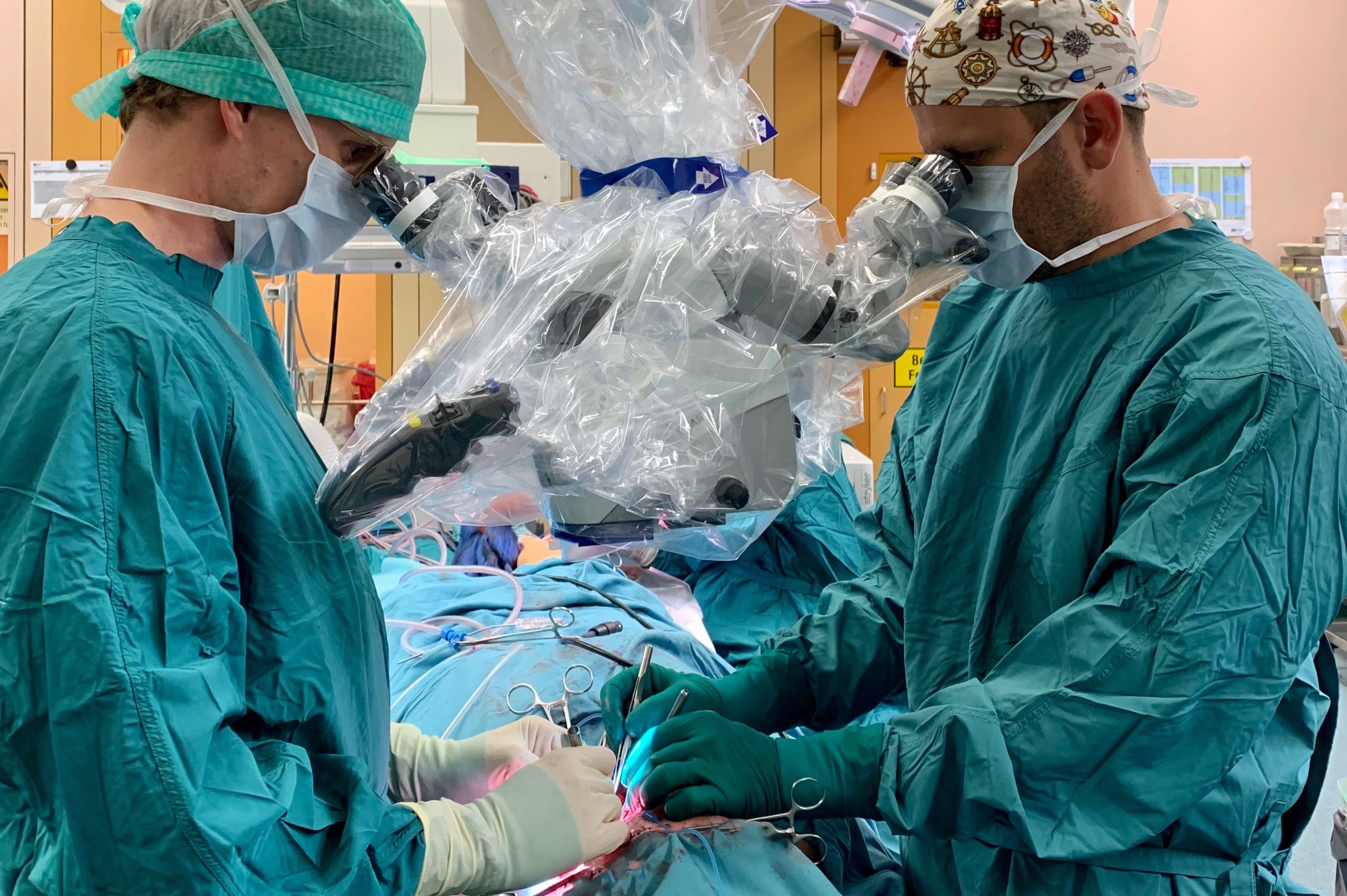
(Vienna, 07-04-2023) For several years, a complex microsurgical procedure called free flap surgery has been performed for head and neck cancer at the University Hospital Vienna and MedUni Vienna's Department of Ear, Nose and Throat Diseases. With this method of reconstructive tumour surgery, tissue is removed from one part of the body and then reconnected to the bloodstream under a microscope and transferred to another part of the body. An evaluation at the University Hospital for Ear, Nose and Throat Diseases now shows that the operating time for flap transplants has been drastically reduced in recent years. An important contribution to the increasing expertise on this intervention is due to the participation in fellowship programs abroad.
Since 2011, the University Hospital Vienna and MedUni Vienna's Department of Otorhinolaryngology have been performing independent resection and reconstruction of head and neck carcinomas using free flap surgery. In this method of reconstructive tumour surgery, head and neck carcinomas or larger skin carcinomas are first removed within one operation; subsequently, the affected mucous membrane or skin area is reconstructed. The surgical procedures are performed by two teams operating simultaneously. While one team removes the tumour and the surrounding lymph nodes, the other team lifts the free skin flap, usually from the arm or thigh, and prepares it for reconstruction in the head and neck area.
At the University Department of Otolaryngology, surgeons learn basic surgical skills for this complex microsurgical procedure, such as tumour resection, preparation of the neck and connecting vessels, and microsurgical anastomosis of vessels in the neck. One-year fellowship programmes offer surgeons the opportunity to refine and further develop these skills. A total of six doctors at the University Department of Otorhinolaryngology have completed such a programme since 2009.
An evaluation now shows that the participation in fellowship programmes increases expertise in this technique. The average operating time for the entire procedure, from simultaneous tumour resection and neck dissection to reconstruction with a free flap by separate teams, has been drastically reduced from an initial average of twelve hours to five and a half hours in recent years. A reduction to half the previous operating time has had a positive effect on patients and staff. Due to the shorter operating time, staff can take on more cases, which allows for more high-quality training for residents and specialists at the University Hospital. The quality of treatment has also increased and the planning and execution of the complex interventions can be improved in the core working hours of the surgical team.
As Georg Haymerle of the University Department of Otorhinolaryngology notes, "From the experience of the University Department of Otorhinolaryngology, participation in clinical fellowship programmes abroad introduces numerous benefits for teaching and training, for the surgical teams and the patients, and raises surgical skills to international standards". "The implementation of these skills in the operating theatre is only possible through perfect cooperation between anaesthesia, operating theatre nursing and operating theatre assistants."